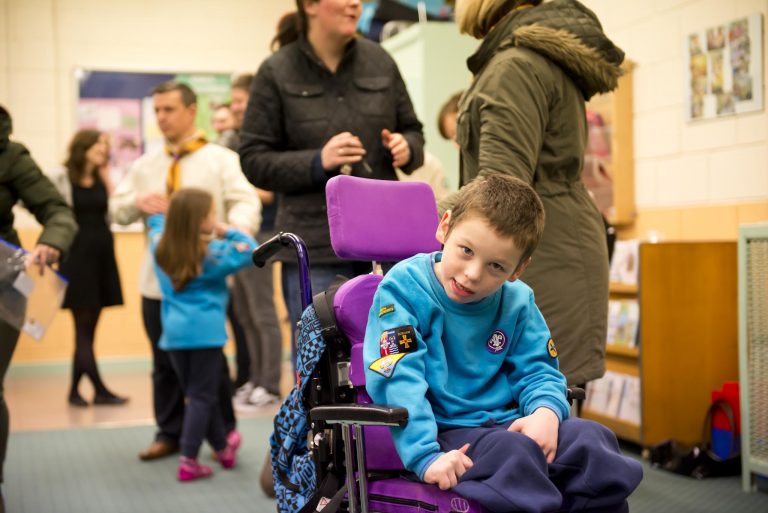Scouting for all in Gloucestershire
Here you will find some tips and resources to help you be more inclusive towards all young people and adults in Scouting.
By being practice, supportive and sharing good practice, we aim to give all our Groups and Units the skills and knowledge to be as open and accessible to all; and treat everyone with fairness, equality, and respect.
By removing real and perceived barriers, we can ensure that even more young people and adult volunteers can enjoy the adventure of Scouts and that Scouts will be as diverse as the communities in which we live.
Making everyone feel welcome
Whatever our beliefs and ways of life, we welcome everyone. Find out more about Scouting in these areas:
• LGBT+
• Faiths and beliefs
• Girls and women
• Race and ethnicity
Additional needs and neurodiversity
Have a look at how Scouting supports a range of needs our young people and adult volunteers may have:
• Sensory and physical needs
• Social, emotional, and mental health
• Communication and interaction
• Cognition and learning
• Working in partnership with Parents and Carers
• Reasonable adjustments
Need help or advice?
Contact the Inclusion Team at:
Tips
Inclusion is good practice: consider everyone’s needs – physical, social and emotional
Focus on the individual not the disability
Don’t wrap young people in cotton wool. They have a disability; they are not ill.
Don’t make assumptions:
- That they cannot access your premises when in reality they may have to cope with similar situations all the time in their home or community
- That because they cannot speak clearly, they do not understand
- That because they cannot join in some of your activities, they will not enjoy being part of all you do.
Talk to the young person and family members. Also, see the questionnaires and supporting material below.
Don’t assume they will need someone to help them all the time to enable them to join you – whilst some children made need one-to-one support initially or for specific activities, you need to be wary of a personal supporter becoming a barrier to their involvement and isolating them from their peers. Try to encourage such support to be part of the wider team bringing their gifts and skills to the wider context and sharing the individual support among the team and where appropriate among the other members of the section.
Use a variety of media to communicate – can you run a favourite game using pictures or simple sounds rather than words? Use pictures to indicate parts of your building, what’s stored in a cupboard or box; create a picture chart of different activities to enable children with limited speech to choose which they would like to do or to help explain what is going to happen next.
Regularly monitor how it is going with your team and with the family and the individual – see the suggested form below.

Quick links
Gloucestershire Scouts has their own Inclusion Calendar with activities, ideas, and info to support young people and adult volunteers.
How good are you?
RAG rate your section, group, or district to see how inclusive you are.
Specially designed forms to assist you in including a disabled child or young person
More About Me form with prompts 
More About Me form – blank  to be completed in with parent/carer not to be sent home for completion – this is part of the good practice of inclusion.
to be completed in with parent/carer not to be sent home for completion – this is part of the good practice of inclusion.
Communication Passport template 
Monitoring Inclusive Practice template 